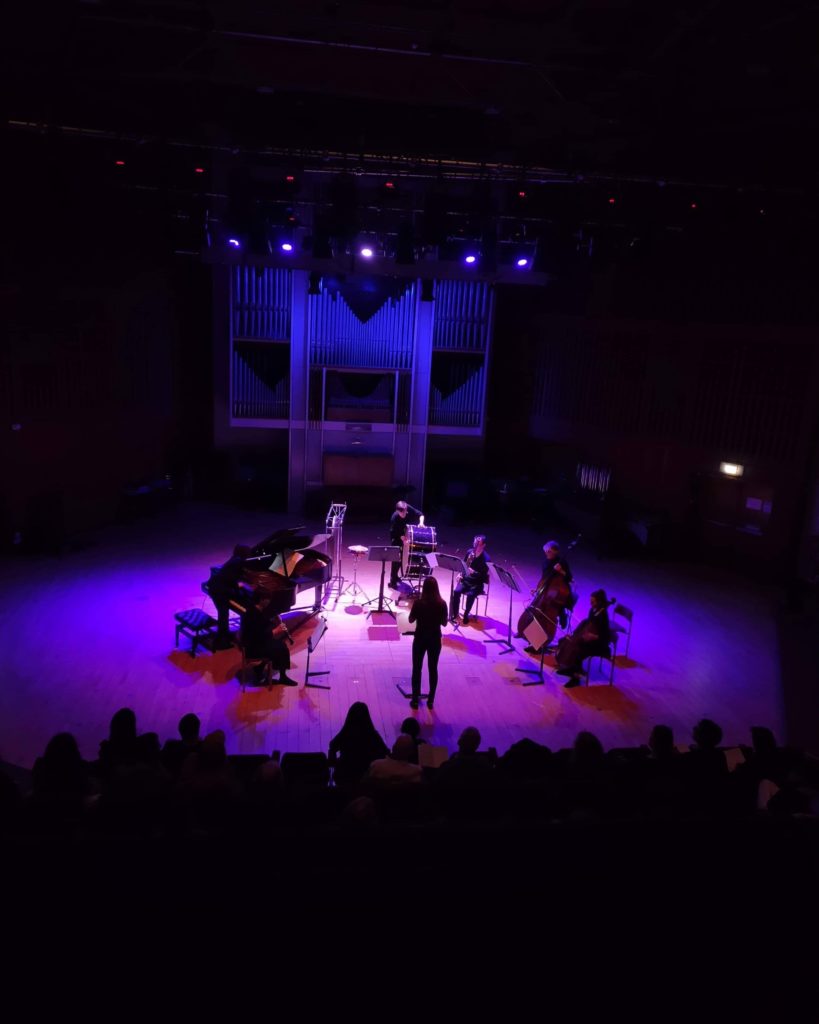
GYOGY Kurtág’s Játékok piano pieces formed the main part of this innovative programme, with works by Howard Skempton and Paige Halliwell threaded in between the four groupings and closing with Michael Nyman.
This is the first time I have heard the Játékok pieces live, and they were a revelation. The only real influence I could discern was certainly not Beethoven, nor indeed Bartok, but Webern. In truth they were utterly original.
Each miniature beautifully crafted, each a portrait, a homage to his friends, fellow artistic travellers – Ligeti, Christian Wolff, a nod to Bach and, in the touching Hommage á Kurtág Márta, his wife with whom he played the piano duets.
All four groups were played by different pianists: Brinsley Morrison, Sam Goodhead, Katie Laing and Imogen Weedon & Charlotte Brettell (duets from Book VIII). Their care, the quality of touch, the precision and understanding of these tiny, intricate, aphoristic gems was a delight; polished and professional.
Játékok means games in Hungarian. Indeed, Kurtág said: “The idea of composing Játékok was suggested by children playing spontaneously, children for whom the piano still means a toy.” And this was what the performances created, that sense of innocent wonderment and discovery.
The Chimera Ensemble was conducted by John Stringer, always a good thing. His precision and quiet authority ensured refinement and clarity in the three dovetailed works.
Howard Skempton’s Sirens (Version 1 and Versions 2 & 3) came across like musical paintings, gentle landscapes of instrumental colour created by simple chords oscillating between the different instrumental groups.
Now I do like Howard’s music, and I like the guy himself. I also like that these pieces were written for CoMA, a contemporary music organisation whose aims and values I share. However, although the performances were genuinely relaxing and engaging, the experience for me at least, was a little underwhelming.
Indeed, I initially thought the second Chimera contribution was also by Skempton – the lights being dimmed for, presumably, a performance-enhanced experience also meant it was difficult to see the actual programme notes – and a more enjoyable one too.
I’d actually written “that’s more like it, Howard” in my notes, only to discover it was a piece called Flux by Paige Halliwell – and a good one too. The Chimera Ensemble delivered its monolithic sound world to great effect where melodic shapes emerged, sometimes for their own sake and sometimes as part of a short musical conversation. Good performance, good piece.
Now to the Nyman, a composer whose music always gives me genuine foot-tapping, pulsating joy. I love the immediacy, intelligence and the physicality of his works. Not here, however. Despite the remarkably disciplined six-piano performance, the velvety textures and quiet jazzy influences, this did not work for me. I found the piece and musical experience a spectacularly self-indulgent, utterly tedious waste of time. I’ll get my coat.
Review by Steve Crowther
